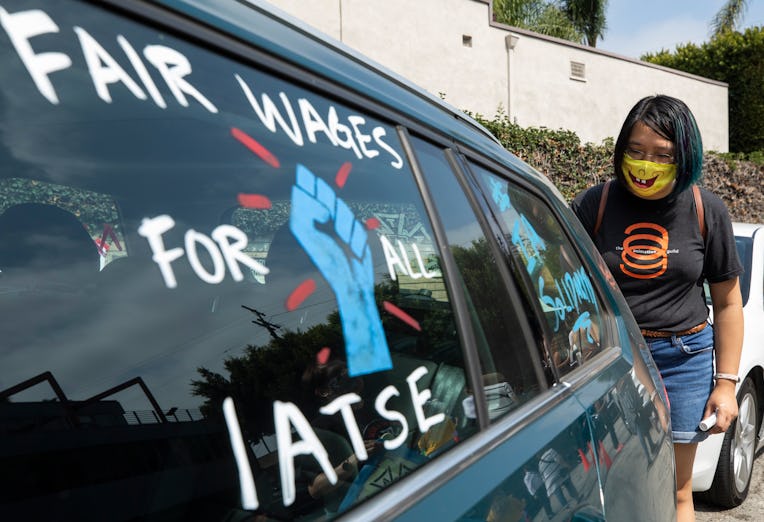IATSE Workers DTF (Down to Fight)
Film & TV workers voted to authorize the first nationwide strike in the union’s history

Members of the International Association of Theatrical Stage Employees (IATSE) have overwhelmingly voted to approve a strike authorization, with 98.7 percent support from 90 percent of the eligible voters. Matthew D. Loeb, the president of the union, now has the power to call a strike, which would shut down film and TV productions all across the country.
IATSE — which bargains on behalf of over 150,000 crewmembers across film and TV — has been in negotiations with the Alliance of Motion Picture and Television Producers (AMPTP) since May for a new Basic Agreement. The strike authorization vote concerned around 60,000 of the union’s workers, who are looking to secure better hours for crew members, better wages for its lowest paid members, and more fair wages for crew members on “new media” projects.
“This vote is about the quality of life as well as the health and safety of those who work in the film and television industry. Our people have basic human needs like time for meal breaks, adequate sleep, and a weekend. For those at the bottom of the pay scale, they deserve nothing less than a living wage,” Loeb said in a statement today.
But a strike isn’t necessarily imminent. The plan seems to be to use strike authorization as a threat to the AMPTP. Joe Martinez, a member of IATSE Local 44, told Variety, “No one’s gung-ho about a strike… We’re more interested in having certain things become fair.”
As for the AMPTP, they are listening and learning. “We deeply value our IATSE crew members and are committed to working with them to avoid shutting down the industry at such a pivotal time, particularly since the industry is still recovering from the economic fallout from the COVID-19 pandemic,” the group said in a statement. “A deal can be made at the bargaining table, but it will require both parties working together in good faith with a willingness to compromise and to explore new solutions to resolve the open issues.”
All of that basically boils down to, “Hey, whoa, slow down there, fellas.” However the numbers do not lie, and it sure does look like 98.7 percent of Hollywood workers have no interest in slowing down.